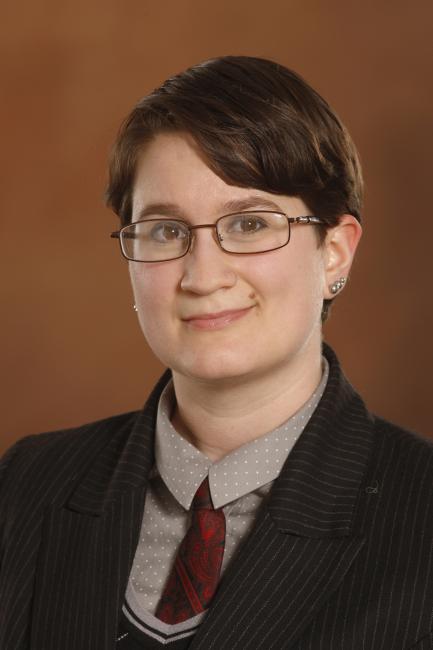
~ 3 minute read
When you think of ethics in research, you might think it’s summed up by asking a participant’s permission or getting that signature on a consent form. But it’s much more than that. It’s also about considering the needs of the research participants. A recent study points to inclusion as a guiding principle for an ethical approach to research. “Everything is underpinned by the respect for the individual,” says one of the study’s authors, Dr. Ariel Cascio, an Assistant Professor in the Art of Medicine at Central Michigan University College of Medicine.
“Inclusion is a really important part of research,” says Dr. Cascio, discussing the study she coauthored, Person-oriented ethics for autism research: Creating best practices through engagement with autism and autistic communities. “Researchers want to be inclusive. So thinking about how to make meaningful engagement between researchers and participants becomes very important.”
Dr. Cascio, along with her colleagues Dr. Jonathan A. Weiss and Dr. Eric Racine, and a panel of researchers, self-advocates, family members, and autism professionals from the Autism Research Task Force, published the study in June 2020 summarizing the best ethical practices in person-centered autism research, which considers the research participant and their needs first.
The study highlights five guideposts, important to ethical and person-centred autism research:
- Individualization: ensuring the research process fits the needs of each participant.
- Lived experience: considering the world the participant lives in.
- Empowerment: making it easier for participants to make their own choices.
- Respect for holistic personhood: valuing the input from the participants and considering their needs and strengths.
- Focus on researcher-participant relationship, considering how researchers and participants take part in the research process together.
Underlying all of the guideposts is the idea of respect.
Dr. Cascio explains while there is some overlap between guideposts, each one remains distinct. Underlying them all, however, is the idea of respect. Respect is sometimes undermined in different ways that are detrimental to research. It can be innocent and well-meaning, such as when a researcher excuses people they want to protect from discomfort, or a parent or caregiver steps in and decides against the participation of a person on the spectrum. Excluding groups of participants from the study, says Dr. Cascio, may hurt the research process.
Dr. Cascio got involved with autism research as an undergrad studying anthropology at Washington University in St. Louis. There weren’t many resources in grad school, she says, but she found the experience valuable. “I had done some research into adolescents and youth on the spectrum... but I felt there was more I could do. I was working with [a variety of] participants, some with a higher level of support needs, some with a lower level.”
Dr. Cascio offers suggestions to other autism researchers. It’s important to reduce the sensory burden on participants, she says. “Think about sensory environments where the research takes place. Use plain language – provide multiple ways for people to access [the] study so they can participate, such as using the phone or email.”
But it’s also critical, she says, for researchers who are studying people on the spectrum to read the writings of people on the spectrum in the social sciences and to avoid depending on what she calls “the sole token lived experience participant/expert.”
“Some people might worry about protecting people on the spectrum and wind up excluding certain groups,” says Dr. Cascio, “such as young children, the non-verbal, the LGBTQ community. If you don’t get those perspectives, your research may be not useful.”
Since the original paper’s publication, Dr. Cascio and her colleagues published a second paper, Person-Oriented Research Ethics to Address the Needs of Participants on the Autism Spectrum. “It’s very cool because it gives some quick tips and is ethics friendly. ...I’m very grateful to my colleagues, Dr. Weiss and Racine and to everyone on the taskforce.”
DISCLAIMER: This document reflects the views of the author. It is Autism Ontario’s intent to inform and educate. Every situation is unique and while we hope this information is useful, it should be used in the context of broader considerations for each person. Please contact Autism Ontario at info@autismontario.com or 416-246-9592 for permission to reproduce this material for any purpose other than personal use. © 2020 Autism Ontario 416.246.9592 www.autismontario.com

